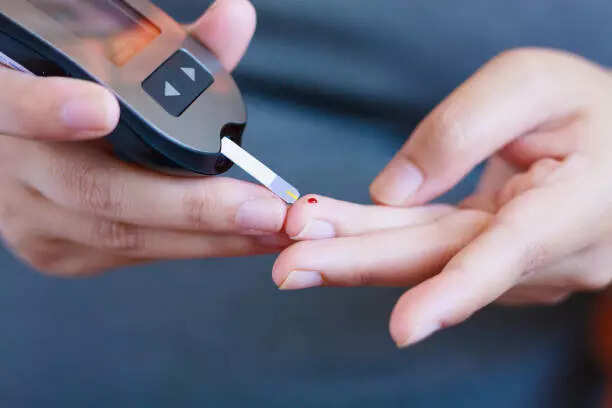
New Delhi: India’s sweet tooth is turning deadly, and the youngest generation is paying the price. Once considered a disease of the middle-aged, diabetes is now creeping into classrooms and college campuses, turning teenagers into patients decades before their time. Sedentary lifestyles, stress, and the lure of processed food and sugary drinks are pushing urban youth toward what doctors call a “slow-motion epidemic.”
A 2025 study published in The Lancet revealed that 19.8 per cent of Indians aged 45 and above, nearly 50.4 million people are diabetic, with urban prevalence nearly double that of rural areas. Another Nature study covering over 51,000 adults found that 41.2 per cent are at high risk of developing Type 2 diabetes. Experts warn these figures may only be the tip of the iceberg, as early-onset cases among adolescents are rising sharply, often undiagnosed until it’s too late.
“In our adolescent population, a sharp rise in young insulin resistance has been observed,” said Dr. Sunita Kapoor, Director & Laboratory Head, City X-Ray & Scan Clinic. “Most of these cases are linked to excessive intake of sugary drinks, fast food, and processed snacks. Convenience-based food culture has replaced traditional nutritious meals, resulting in poor metabolic health at a very young age,” Dr Kapoor said.
She added that screen addiction and minimal physical activity are accelerating the crisis.
Dr. Monika Sharma, Senior Consultant – Endocrinology, Aakash Healthcare, noted that the subtle warning signs in teens are often ignored. “Parents mistake symptoms like fatigue, excessive thirst, or frequent urination for normal growth changes, but they may signal serious metabolic dysfunction leading to Type 2 diabetes,” she said.
Dr. Sandeep Kharb, Senior Consultant – Endocrinology, Asian Hospital, pointed out that junk food has been normalized by advertising, easy access, and peer influence.
“Schools and families must collaborate to promote nutrition education and healthy eating habits early,” he urged.
Adding to this, Dr. Vineet Rao, Consultant – Internal Medicine and Diabetologist, Jupiter Hospital, Pune, stressed the power of prevention through lifestyle modification.
“Cut down processed carbs and sugary beverages, eat more fiber from fruits and vegetables, and engage in at least 45–60 minutes of daily physical activity,” he recommended.
Dr Kapoor emphasised regular health screenings, especially for children with a family history of diabetes.
“We can prevent an entire generation of diabetics by making small, daily lifestyle decisions today. Awareness, early screening, and behavior change are our strongest weapons against this silent epidemic,” Dr. Kharb concluded.>







